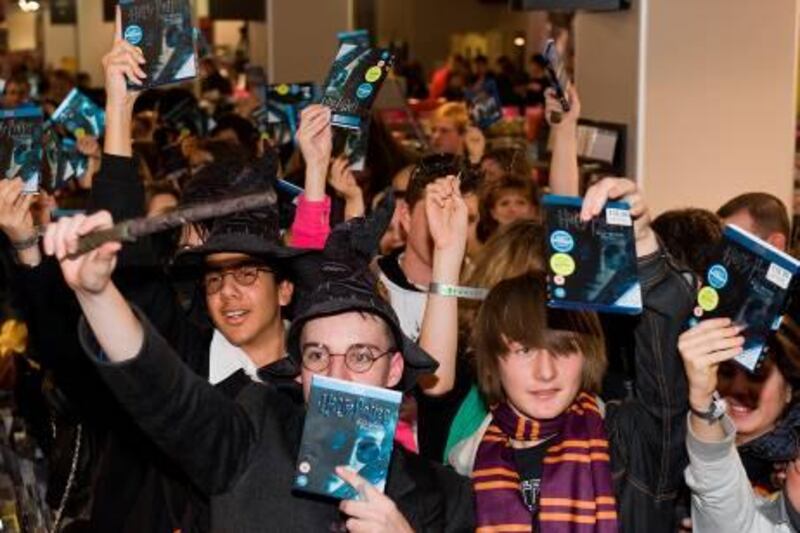With sales of CDs and DVDs declining around the world, you might think the last thing film studios and record labels would want to do is limit customers' access to their releases. But signs in recent weeks indicate that the until-now accepted rules of supply and demand in home entertainment may be changing.
Many fans of the Harry Potter films - the highest-grossing movie franchise yet - were surprised to learn last month that anyone contemplating owning the films on DVD might have only a few weeks left to purchase them. Warner Bros announced it would cease production of the entire series on DVDs and Blu-Rays on December 29 (including even the latest, Harry Potter and the Deathly Hallows Part 2). This means the titles will soon begin to disappear from shelves and online retailers - a strategy the studio hopes will preserve the films' cultural and financial value. It will also allow Warner Bros to re-release them at times of their choosing and, because of their scarcity, charge higher prices.
Films: The National watches
Film reviews, festivals and all things cinema related
[ Film ]
Meanwhile, the multimillion-selling rock band Coldplay has chosen to ban music streaming websites such as Spotify from hosting its latest album, Mylo Xyloto. Although no official reason has been given by the band, or the label EMI, an unnamed industry source told the tech website CNET that Coldplay wanted the album to be heard as "one cohesive work". But with the tracks available to download individually on iTunes, was it really an artistic decision, or a canny business move?
Denying fans the chance to listen before buying does not seem to have damaged sales of Mylo Xyloto, which topped the charts in several countries and set a record for the highest first-week album sales on the iTunes store worldwide.
But imposing restrictions like these on the way that people buy music and films is unlikely to be adopted across the board. It is no coincidence that both Coldplay and Harry Potter already have well-established international fanbases. Controlling the supply of DVDs, or removing the ability to listen to music cheaply on streaming sites, is only a likely money-spinner when applied to the "crown jewels" of popular culture, those that promise long-term high demand.
For evidence of this, look no further than the Disney corporation. The entertainment giant has employed a strategy of limited releases for its "classic" animated films for some years. Each title is made available for just a short period of time, before being withdrawn. The Lion King and The Little Mermaid are currently among the studio's hard to find titles.
"This strategy, of short release windows followed by a period of stock withdrawal has had two key consequences," James Russell, a senior lecturer in film studies at De Montfort University, wrote in The Guardian newspaper in London. "Firstly, it has meant that Disney's films maintain their value on DVD by virtue of their scarcity. Secondly, Disney's animated films have retained an aura of quality, prestige and exclusivity."
Warner Bros' decision to treat Harry Potter in a similar way suggests it believes the film series will provide a revenue stream capable of being tapped for not just years, but decades, to come.
Also known for the tight grip its owners hold over it, is the Beatles back catalogue. As well as refusing to allow retailers to sell the Fab Four's albums at discounted prices for many years (once again, to preserve their "cultural value"), and resisting the CD format for several years - the group's music appeared on iTunes only in November of last year.
Although there had been a long-running dispute between Apple Corp (owned by the Beatles) and Apple Inc (the electronics giant) - the deadlock had been over price.
"[Steve Jobs] says that a download is worth 99 cents, and we disagree," George Harrison's son Dhani told the website Blender.
Coldplay's Spotify ban follows an identical tactic used by one of this year's other highest-selling artists, Adele, whose album 21 has shifted more than 10 million copies. While limiting the availability of music or films would probably be commercial suicide for artists or producers looking to expand their audiences, it is likely to become an increasingly common tactic used by the biggest names in entertainment.





